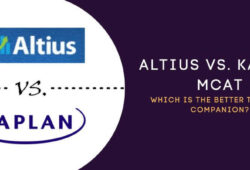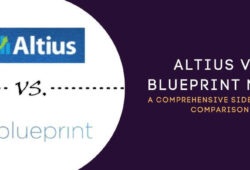The best MCAT practice tests should strike the perfect balance of comprehensive content coverage, AAMC question relevance, excellent answer explanations, and helpful data analytics.
Besides just conditioning you to take the lengthy 7.5-hour long exam that is the MCAT, the best MCAT practice exams should also improve your overall test-taking aptitude, guaranteeing you a spot in your medical school of choice.
So let’s dive right in, shall we?
Spoiler alert! According to the research we did, we found that Blueprint MCAT is the winner as the resource with the best and most representative practice tests for MCAT.
Which MCAT Practice Tests Are Right For You?
- The hardest MCAT practice tests best suited for strengthening your MCAT content review: The Princeton Review.
- The most representative practice tests similar to the real MCAT in content coverage, style, and relevance: Blueprint MCAT.
- The MCAT practice tests with the best answer explanations: Blueprint Prep.
- The MCAT practice tests with the best online interface closely resembling the exam: Blueprint Prep.
- If you need to work on your critical thinking and experimental concepts, we recommend: Examkrackers.
MCAT Practice Tests Comparison
MCAT Kaplan | MCAT Princeton | Blueprint MCAT | Magoosh MCAT | Examkrackers MCAT | |
Practice Test Bundle? | Yes | No | Yes | No | Yes |
Cost | $129 | $1,999 | From $149 | From $379 | $125 |
Access Period | 6 Months | 1 Year | 6 Months | From 1 Month | 6 Months |
Score Predictivity | Deflated by 7-9 Points | Deflated by 8-12 Points | Accurate, 3-6 Points Lower | -- | Deflated by 9-11 points |
Free Practice Exam? | Yes | Yes | Yes | Yes | No |
Diagnostic Test? | No | Subject-Based | Half-Length | No | No |
Full-Length Practice Tests | 3 | 16 | 4 | 3 | 6 |
Detailed Analytics Report? | Yes | Yes | Yes | No | No |
Best MCAT Practice Tests In 2024
1. MCAT Kaplan
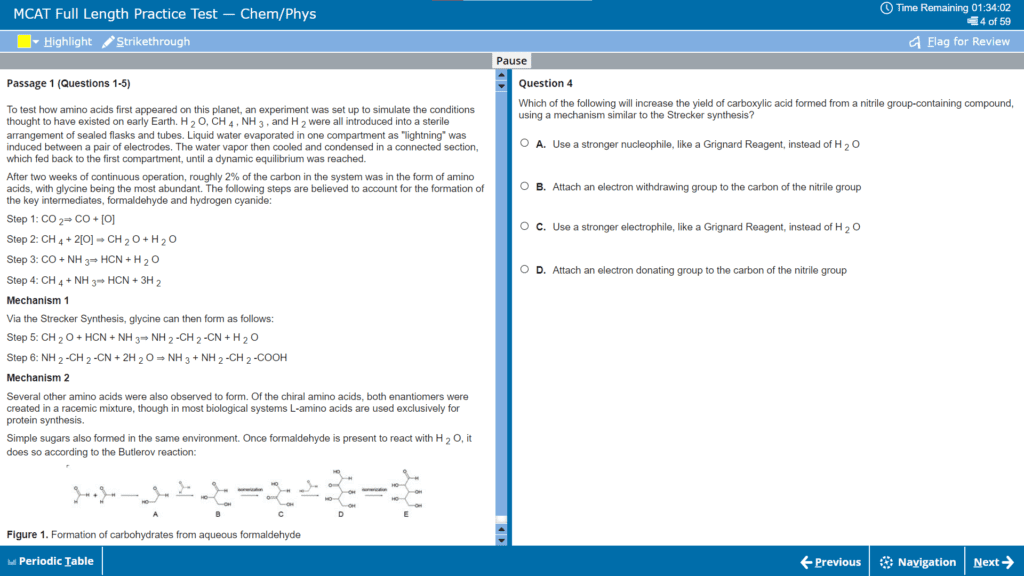
Accuracy: Kaplan practice tests are much more challenging than the actual MCAT exam. As a result, these exams are not very representative of the score you should anticipate on the actual exam.
On average, students reported scoring about 8 points higher on the real MCAT, than they did on Kaplan practice tests.
Rather than getting discouraged by the difficulty of these exams, use them as a tool to gauge your knowledge and understanding of the various topics and subjects. Ultimately, if you can get through Kaplan tests with a decent score, then you will be just fine on the real exam.
Material Tested: Kaplan’s tests tend to be much more content-based than the AAMC practice tests, which are more similarly styled to the actual exam.
With Kaplan, the tests are highly based on detailed concepts testing more content knowledge by focusing on the minutiae that aren’t necessarily tested on the real exam.
There are plenty of recall-type questions requiring you to remember something from your studies rather than being provided with clues in the passages. On the other hand, the real MCAT focuses more on assessing how you think, not just what you know.
Kaplan rewards detailed content knowledge, whereas the MCAT rewards your ability to apply fundamental content knowledge to complex, novel situations.
For these reasons, Kaplan’s tests are best used as a content review resource to help you identify your knowledge gaps.
Experimental Passages: Kaplan doesn’t have very good experimental passages. You will find that most passages are information-based, whereby you have long, wordy passages, as opposed to containing more experiments as the AAMC prescribes.
Discrete Questions: Kaplan’s discrete questions are pretty tough, with some requiring very tough mental math and having obscure and complicated formulas that you will not likely need to know.
The good news is that the AAMC questions aren’t nearly as tough as what you will encounter in the Kaplan practice tests. As such, these questions will prove to offer excellent practice in building your stamina and working on your timing in preparation for the real exam.
Answer Explanations: Kaplan offers pretty decent, in-depth answer explanations for each question, not only explaining the correct answer, but more often than not, they will also highlight why the other answer choices are wrong.
Online Interface: Kaplan’s interface is straightforward to use and navigate. At the same time, it has been designed to imitate the real test interface as much as possible, so students can familiarize themselves with the look and feel of the actual exam even while taking practice tests.
– Great tool for content review.
– The answer explanations are pretty great.
– The test interface comes close to the real thing.
– Has pretty terrible experimental passages.
2. MCAT Princeton
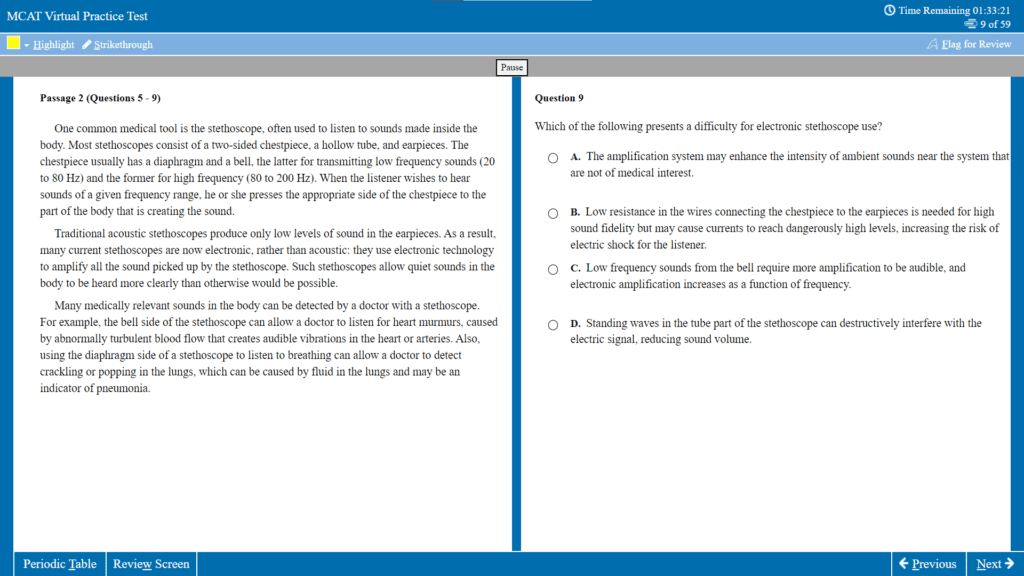
Accuracy: Similar to Kaplan, Princeton Review’s practice tests are much harder than the actual MCAT. As a matter of fact, Princeton MCAT practice tests might actually be much harder than Kaplan.
Students report scoring about 10 points higher on the actual test than they did on Princeton Review practice tests.
As a result, these exams are not very representative of the score you should anticipate on your MCAT exam. Instead, they should be used as a tool to familiarize yourself with the look, feel, and question format of the MCAT exam.
Material Tested: Princeton Review tests are much more content-based than the AAMC practice exams, which are closer in format and styling to the real MCAT.
Right from the free MCAT practice test offered, you will notice that many questions require you to apply direct recall of specific facts and details at a higher rate than what you would encounter on the real exam.
At the same time, these tests focus quite a bit on really niche concepts that have a pretty low probability of being tested on the MCAT exam.
The CARS section is Princeton Review’s particular weak point. Plenty of students reported that this section on the practice tests was radically different from what they encountered in the actual exam.
Even though Princeton’s practice exams are not very accurate to the real deal, that doesn’t mean that taking them is a waste of time. The 16 full-length practice tests would be an excellent tool for content review to help you bolster any knowledge gaps you may be unaware of.
Experimental Passages: Princeton’s passages are more technical, complex, and far advanced than you would expect on the actual MCAT.
While the real MCAT relies heavily on you reading and analyzing the passages, the Princeton Review is more content-based, requiring you to apply active recall quite often.
Furthermore, their passages can be long and wordy, yet the AAMC is moving more towards experiment-based passages.
The advantage is that these tougher passages can help you practice your test timing, and you will also get to practice reading hard material so that the real MCAT will appear that much easier to get through.
Discrete Questions: Similar to the passages, the discrete questions in Princeton Review tend to test extraneous details and complicated concepts which you will not necessarily have to deal with in the real exam.
The advantage is that these content-heavy questions allow you to test how well you have grasped your content review. So instead of getting discouraged by the hard questions, use this as an opportunity to identify your knowledge gaps.
Answer Explanations: Princeton offers pretty decent answer explanations to each question. However, they will only explain the correct answer and not address why the other choices are the wrong option so keep that in mind.
Online Interface: Princeton’s online interface certainly isn’t the best out there. It can be a little glitchy sometimes, and even setting up the tests could require you to possess some technical know-how.
– Excellent tool for content review.
– The 16 tests offer plenty of practice.
– Provides a diagnostic test.
– The interface can be glitchy at times.
3. Blueprint MCAT
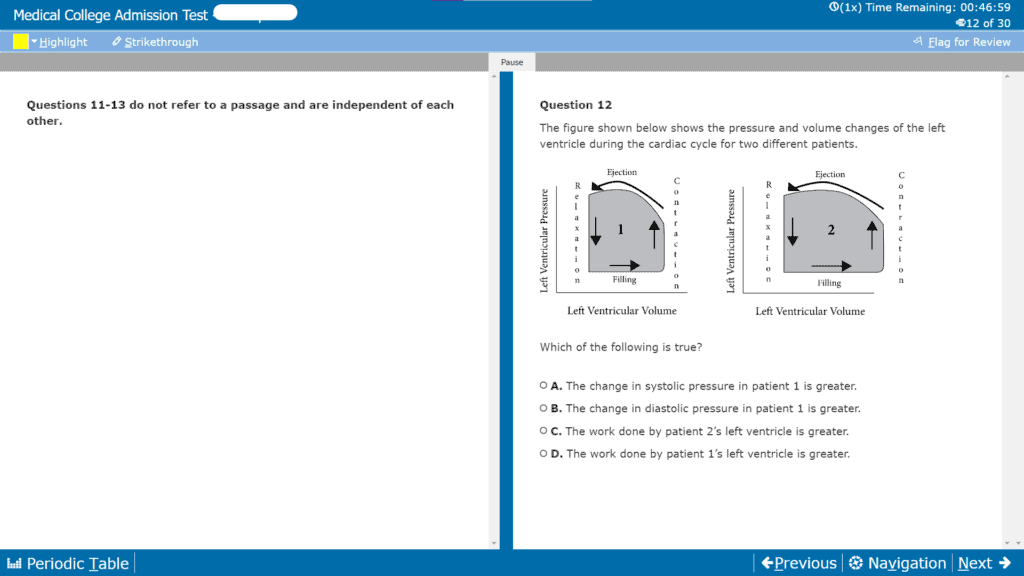
Accuracy: Blueprint’s exams are pretty accurate. Actually, as far as 3rd party exams go, this is the company that comes closest to representing the difficulty of the actual MCAT.
Being a very representative resource, you can expect your score on Blueprint practice exams to be about 5 points lower than what you will end up scoring on the actual thing.
As such, aside from the AAMC practice tests, Blueprint is the one other resource that can be used to accurately gauge exactly where you stand as far as MCAT scores are concerned.
Material Tested: The array of the material tested on these exams is pretty similar to what the real MCAT tests.
That being said, it is worth noting that Blueprint’s exams are definitely harder than the actual MCAT, but not as hard as what you experience with Kaplan or The Princeton Review.
Also, being slightly harder, Blueprint tends to curve the scores accordingly to represent the real exam.
Nonetheless, the practice tests ask about pretty much everything, so they would serve as an excellent round 2 review method. If you are weak in a particular topic, you will discover that pretty fast with Blueprint.
Experimental Passages: Overall, Blueprint has excellent science passages that are pretty representative, especially regarding the content covered.
On the other hand, however, the CARS passages are quite different from the typical AAMC style, so this would not be a great resource to work on your critical thinking skills.
The Bio-Biochem section passages are very experiment-heavy, which is a good thing because it will offer you excellent practice for the MCAT. The real exam involves a ton of interpreting experiments.
Discrete Questions: The Chem-Phys section on Blueprint is rather formula- and calculation-heavy. This may appear like a bad thing, but it will actually help you work on your timing, so the real exam appears that much simpler.
At the same time, when it comes to the Psych-Soc section, Blueprint hits enough terminologies to provide you with solid MCAT preparation for the real exam.
All in all, the quality of the discrete questions is somewhat decent as far as content coverage and relevance go.
Answer Explanations: Blueprint provides excellent long explanations to each question, including a detailed content breakdown.
These extremely in-depth explanations act as the 2nd round of content review as you review MCAT practice tests that you have already done.
Online Interface: Blueprint’s online interface is pretty decent, closely resembling the real MCAT’s interface, including the fact that both platforms feature the strikeout and highlighting functions.
It is relatively easy to navigate, and most students like the fact that what you see on the screen when taking a Blueprint test is very similar to what you see when taking the actual exam. This greatly helps with reducing anxiety on test day.
Data Analytics: One feature that makes Blueprint the best MCAT practice test resource is the advanced test performance analytics used.
In particular, test-takers love that they are provided with a breakdown of the answers they switched from right to wrong and vice versa.
You may find interesting: a complete comparison of UWorld and Blueprint
– Pretty representative of the real MCAT in content and format.
– Has very well-written answer explanations.
– Has incredibly helpful data analytics.
– Falls short in the CARS section.
4. Magoosh MCAT
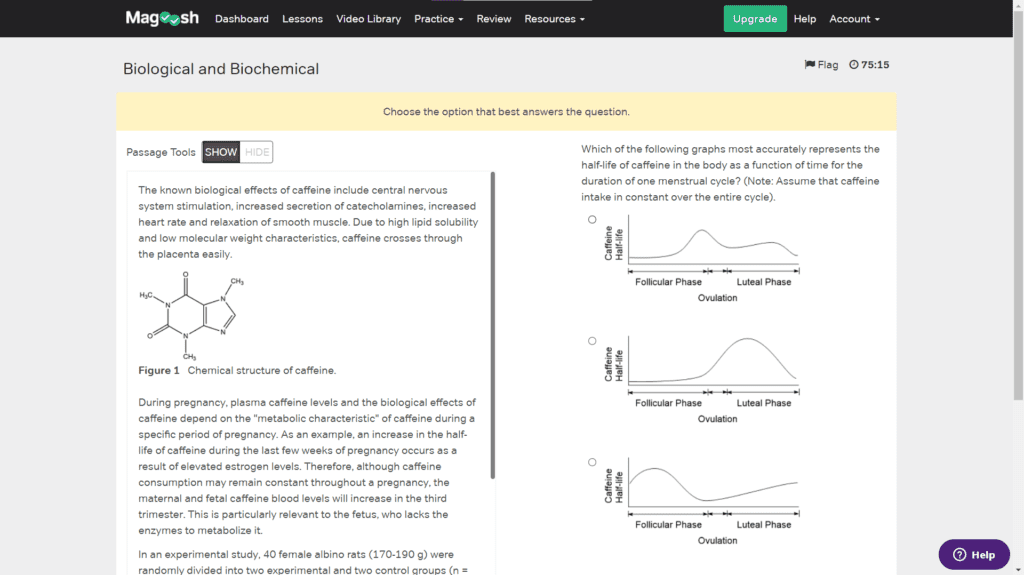
Accuracy: As far as difficulty goes, Magoosh is almost at par with the real MCAT. If not, it is only slightly harder than the real MCAT.
With that knowledge, it would be easy to assume that Magoosh test scores accurately represent your future MCAT score, but that isn’t necessarily the case.
Material Tested: The wording used by Magoosh in its practice tests is slightly different from what the AAMC dictates. Also, the style of questioning veers quite a bit from the AAMC question style.
For these reasons, Magoosh doesn’t really do a great job of familiarizing yourself with the MCAT question style and format. Additionally, the full-length practice exams pull questions from Magoosh’s question bank rather than the tests having new, unique, standalone practice questions.
Meaning if you have already gone through the question bank, there wouldn’t be anything new to look forward to in the practice tests, which includes the free practice test offered by Magoosh.
Experimental Passages: Magoosh does not utilize the official AAMC questions, and this also applies to the passage-based questions.
Rather than inclining more towards experiment-based passages whereby you read and analyze the information provided in the passage, Magoosh’s passages are rather long and wordy and require you to apply quite a bit of content recall.
Discrete Questions: Magoosh could do a better job at imitating the AAMC question style and format. As of now, this prep service is a far cry from the real thing.
Many questions in the practice tests are worded and phrased differently than how the MCAT does it.
On the one hand, this could help you identify how to answer questions asked in a variety of ways. On the other hand, however, it doesn’t really give you a realistic feel of understanding how the MCAT asks questions and how the AAMC wants these questions answered.
Answer Explanations: Magoosh offers detailed explanations to each question asked in the practice tests.
The service takes time to go into detail, explaining why each answer option is the correct or incorrect choice for that particular question.
Online Interface: Although Magoosh’s platform is very easy to use and navigate, the test interface isn’t remotely close to the real MCAT.
For instance, Magoosh tests do not give you access to the periodic table, nor do you have the highlighting feature.
– It has an easy-to-navigate interface.
– The answer explanations are pretty detailed.
– You can filter questions using a variety of parameters, e.g., difficulty levels.
– The tests do not have any new questions.
5. Examkrackers MCAT
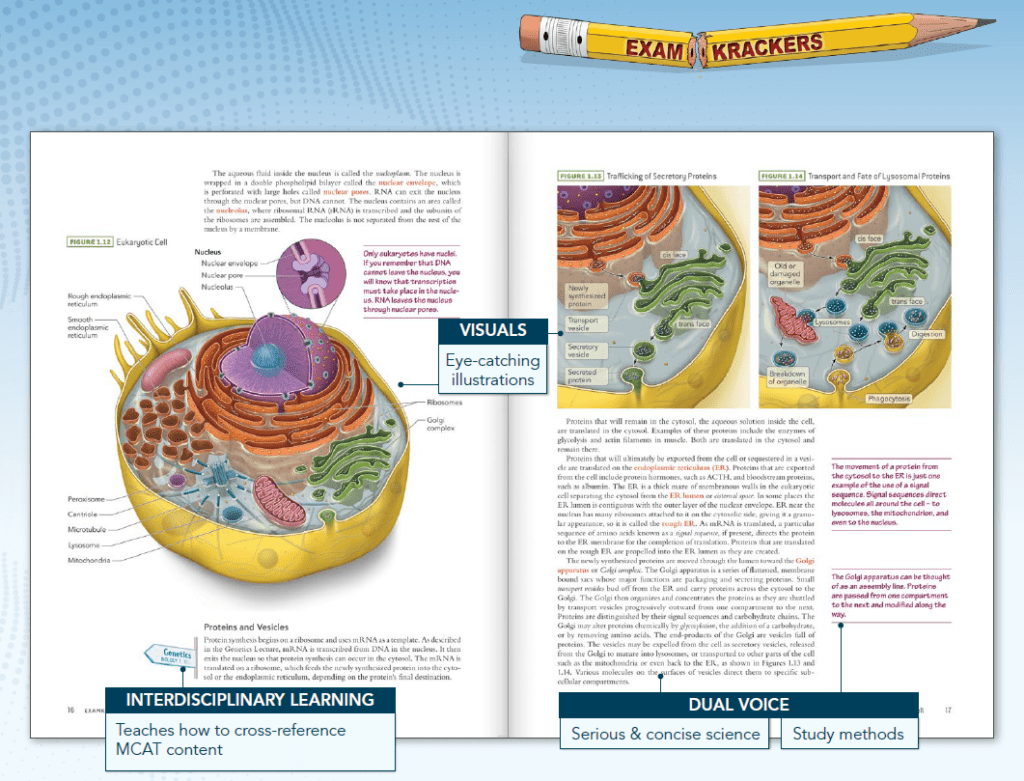
Accuracy: Examkracker’s practice tests are harder than the MCAT, but that is no surprise, as many 3rd party tests are designed this way.
As such, your score on an Examkracker exam will be slightly deflated compared to your actual score on the real exam.
Don’t let a lower score on your practice exams rattle you, though. Scoring 70% on Examkrackers is pretty decent, and if you can get to over 80%, then you can rest easy knowing you will do great on the real exam.
Material Tested: Examkrackers exams are more representative of the AAMC material as far as content and style are concerned. Overall, this resource is more straightforward in terms of what you need to know for the MCAT exam.
This prep company nails down how the MCAT asks questions, making them one of the most realistic MCAT practice tests you will find in the market. In particular, Examkracker’s full-length practice test 3 and practice test 4 are the best ones.
Experimental Passages: Examkracker focuses more on critical thinking and experimental concepts, which is why they have excellent experimental passages. Just as well, this test prep company presents you with plenty of experimental questions.
Similar to the real MCAT, Examkrackers presents you with lots of experimental figures but won’t ask about some of them.
Their CARS can get a little ambiguous and challenging. However, it offers good practice – much better than what you get from other 3rd party test prep companies.
Discrete Questions: Examkrackers features a couple of good pseudo discrete questions in a passage.
You will also like the discrete questions, which are on-point and test precisely at the same level as the AAMC practice questions.
Answer Explanations: You will find that some answer explanations offered by Examkrackers are verbatim from their own books, going as far as to cite specific lectures you should read.
While this is okay if you are using the entire Examkrackers test prep course, it isn’t constructive when you are only taking the practice test bundle. You will only end up googling a lot of explanations just to understand what is being covered.
Online Interface: Although easy to use, Examkracker’s interface and on-screen experience are drastically different from the real MCAT, and the platform is somewhat outdated too.
– Pretty representative of AAMC material.
– An excellent resource for practicing critical analysis.
– You can buy a single exam at a time.
– It Doesn’t offer the best explanations.
Verdict
You should start taking practice tests as soon as possible, rather than putting them off till the last stages of your MCAT preparation period.
Practice tests help build your stamina, familiarize you with the testing style, help you with timing, and give you a rough sense of what your actual score might be.
Shorter practice exams can be good for getting your feet wet, but you really need to do full-length practice tests (UWorld MCAT provides this) as well if you want an excellent feel of the real deal, especially as far as timing and stamina go .
Different test prep companies will have varying strengths and weaknesses, so the first rule is don’t invest all your time and attention in taking practice exams of just one company. Diversify.
While Kaplan may be content-heavy and have a diverse number of practice questions, Princeton Review is content-heavy in the sense that you get to really reinforce the fundamentals with material that is more relevant to what the AAMC tests.
Just as well, while Examkrackers is excellent for boosting your critical reasoning skills, Blueprint Prep is great for bolstering your Biological and Biochemical foundations.
Overall, some companies may have content-heavy questions that come in handy when working on your pacing, basic understanding, and mental training, but other companies are better off when it comes to offering more thorough explanations and a wider diversity of question types and formats.
FAQs About MCAT Practice Tests
How Many MCAT Practice Tests Should I Take?
Ideally, you should take between 4-8 MCAT practice tests before you get to sit for the real exam.
The best way to practice for the real exam is to take the exam over and over again, so the more practice tests you embark on, the better off you will be.
The main thing to keep in mind, though, is to diversify by taking MCAT practice tests from varying test prep companies. For instance, Examkrackers’ relevance pairs perfectly with Princeton Review’s comprehensive coverage.
Which MCAT Practice Test Should I Take First?
The first MCAT practice test you should take ought to be a half-length diagnostic exam such as the one offered by Blueprint Prep, for instance.
Not only is Blueprint incredibly representative of the real MCAT, but it also offers excellent answer explanations, and the incredibly helpful data analytics will give you a perfect platform to jump off from.
These factors make Blueprint Prep’s half-length diagnostic exam an excellent choice for a first practice test.
Which MCAT Practice Exams Are The Hardest?
The Princeton Review has the hardest MCAT practice exams as far as comprehensive content coverage and mental training go.
Should I Take A Practice Test The Week Of My MCAT?
Yes, taking a practice test the week of your MCAT is perfectly alright, as this will serve as a final dry run.
You just need to ensure you take the MCAT practice exam earlier in the week, so you have sufficient time to review the test results carefully, going over the questions you missed.
A last-minute exam could help you see whether your timing is on point, and whether there are any question types you need to focus particularly on.




